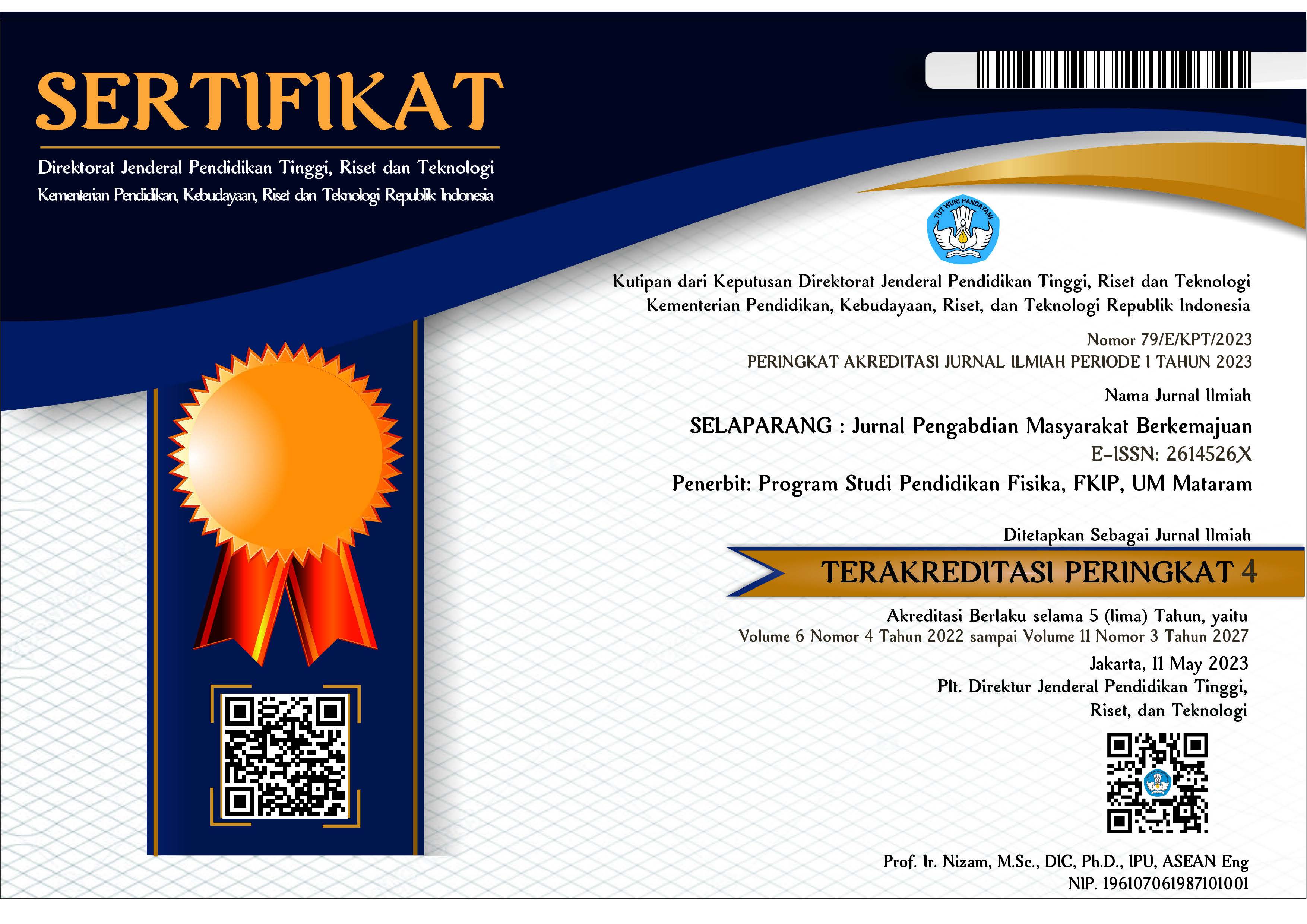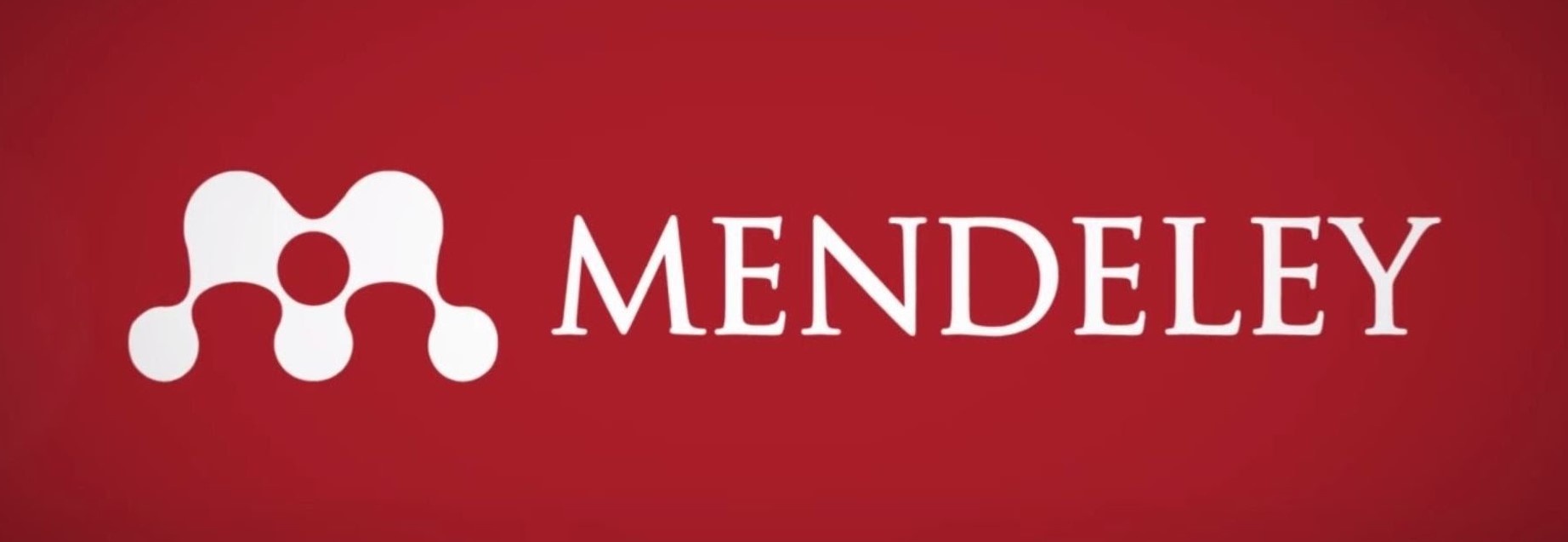PENGUATAN KOMPETENSI PROFESIONAL GURU DALAM INTEGRASI TEKNOLOGI PEMBELAJARAN
Abstract
ABSTRAK
Kompetensi profesional seperti tertuang dalam Undang-undang Nomor 14 Tahun 2005 tentang Guru dan Dosen pasal 8 menuntut para guru untuk memiliki pengetahuan dan keterampilan untuk menjalankan profesi sekaligus beradaptasi dengan perubahan, salah satunya adalah adaptasi terhadap perkembangan Teknologi Informasi dan Komunikasi (TIK). Namun, para guru diketahui enggan untuk mengembangkan kemampuan terkait penggunaan teknologi pembelajaran dan memiliki kompetensi TIK yang rendah. Permasalahan yang sama dihadapi oleh mitra yaitu rendahnya pengetahuan tentang penggunaan TIK pada proses pembelajaran. Oleh karena itu, kegiatan pengabdian ini bertujuan untuk menguatkan kapasitas profesional guru terkait penggunaan teknologi pembelajaran di SMK Bhinneka Karawang. Kegiatan diselenggarakan dalam bentuk diskusi terpumpun dan melibatkan 25 orang peserta. Topik diskusi terpumpun terdiri dari (1) Pembelajaran Abad ke-21, (2) Teacher Character Development dan (3) Guru profesional di era pendidikan abad ke-21. Hasil kegiatan pengabdian masyarakat ini menunjukan adanya peningkatan pengetahuan guru tentang pentingnya kemampuan penggunaan TIK dalam pembelajaran berkategori sedang sebesar 0,54.
Kata kunci: kompetensi profesional guru; pendidikan abad ke-21; teknologi pendidikan
ABSTRACT
Professional competence as stated in Law Number 14 of 2005 article 8 about Teachers and Lecturers states that teachers must own knowledge and skills to carry out the profession and adapt with the changes. The world of education is constantly transforming, especially with the development of Information and Communication Technology (ICT) and the government's priority in the education digitization program. However, teachers are found to be reluctant to develop skills to use educational technology. The same problem occurs in SMK Bhinneka Karawang where teachers lack of knowledge on integrating ICT in the learning process. Therefore, this community service activity was carried out to strengthen the professional capacity of teachers regarding the use of education technology at SMK Bhinneka Karawang. The activity was held in the form of a focus group discussion and involved 25 participants. The topics for the discussion consist of (1) 21st Century Learning, (2) Teacher Character Development and (3) Professional teachers in the 21st century education era. The results of this community service activity showed an average increase in the average teacher's knowledge about the importance of the ability to use ICT in learning by 0.54.
Keywords: 21st century education; teacher professional competence; education technology
Keywords
Full Text:
PDFReferences
Byers, T., Imms, W., & Hartnell-Young, E. (2018). Comparative analysis of the impact of traditional versus innovative learning environment on student attitudes and learning outcomes. Studies in Educational Evaluation, 58(July), 167–177. https://doi.org/10.1016/j.stueduc.2018.07.003
Cheung, R., & Vogel, D. (2013). Predicting user acceptance of collaborative technologies: An extension of the technology acceptance model for e-learning. Computers and Education, 63, 160–175. https://doi.org/10.1016/j.compedu.2012.12.003
Dhawan, S. (2020). Online Learning: A Panacea in the Time of COVID-19 Crisis. Journal of Educational Technology Systems, 49(1), 5–22. https://doi.org/10.1177/0047239520934018
Fahdini, R., Mulyadi, E., Suhandani, D., & Julia. (2014). Identifikasi Kompetensi Guru Sebagai Cerminan Profesionalisme Tenaga Pendidik Di Kabupaten Sumedang (Kajian Pada Kompetensi Pedagogik). Mimbar Sekolah Dasar, 1(1), 33–42. https://doi.org/10.17509/mimbar-sd.v1i2.874
Farla, W., Nailis, W., & Siregar, L. D. (2021). Peningkatan Kompetensi Sumber Daya Manusia (Sdm) Guru Di Kota Palembang Pada Era Adaptasi Kebiasaan Baru. SELAPARANG Jurnal Pengabdian Masyarakat Berkemajuan, 4(2), 137. https://doi.org/10.31764/jpmb.v4i2.4241
Lubab El Banan, Fauzi, W. N. (2022). Persepsi Guru Diniyyah Dalam Pemanfaatan Teknologi Madrasah Diniyyah Andalusia Leler. 10(1), 354–360.
Lubiano, M. L. D. (2018). Interactive E-learning portal for enrichment of conceptual understanding of grade 8 learners in phyisics. The Southern Luzon Journal of Arts and Sciences, 9(2), 39–52. http://tilamsik.slsucas.net/issues/tilamsik10/lubiano
Pardede, P., & Sunarto, S. (2020). Persepsi guru dan siswa terhadap pengunaan TIK dalam pembelajaran di sekolah menegah di Jakarya dan sekitarnya. Jurnal Dinamika Pendidikan, 13(3), 226–237. https://doi.org/10.33541/jdp.v12i3.1295
Reisoğlu, İ. (2021). How Does Digital Competence Training Affect Teachers ’ Professional Development and Activities ? 0123456789. https://doi.org/10.1007/s10758-021-09501-w
Restiyani, R., Juanengsih, N., & Herlanti, Y. (2014). Profil pemanfaatan Teknologi Informasi dan Komunikasi (TIK) sebagai media dan sumber pembelajaran oleh guru Biologi. EDUSAINS, 6(1), 50–66.
Rofi’i, A., Nurhidayat, E., Firhawan, H., & Prihartini, E. (2023). Pelatihan peningkatan professional competence guru dalam mengintegrasikan teknologi dalam pembelajaran di MGMP Bahasa Inggris SMK Kab. Majalengka. 4(3), 1915–1921.
Sadikin, I. S., Nurchaerani, M., & Lutfiyah. (2022). Pelatihan Integrasi Teknologi Bermakna Dalam Proses Pembelajaran Untuk Meningkatkan Motivasi Belajar Siswa. Community Services & Social Work Bulletin, 2(2), 76–81.
Yuniarni, D. (2022). Persepsi guru mengenai pentingnya TIK dalam pembelajaran di Taman Kanak-kanak kota Pontianak. Jurnal Obsesi : Jurnal Pendidikan Anak Usia Dini, 6(3), 2411–2419. https://doi.org/10.31004/obsesi.v6i3.1855
DOI: https://doi.org/10.31764/jpmb.v7i4.17626
Refbacks
- There are currently no refbacks.

This work is licensed under a Creative Commons Attribution-ShareAlike 4.0 International License.
______________________________________________________
Jurnal Selaparang
p-ISSN 2614-5251 || e-ISSN 2614-526X
EDITORIAL OFFICE:



















